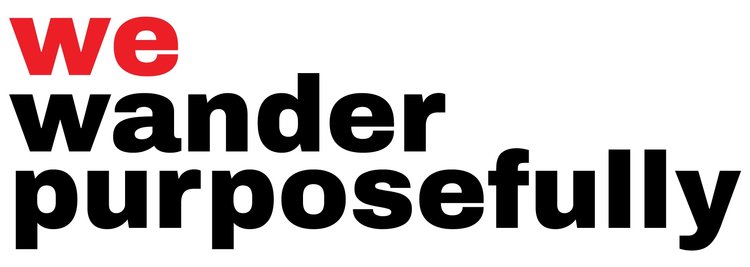The Four Tiers
An edited excerpt from Wander Purposefully: A Reflection on How to Love Learning©
While I was hiking the Pacific Crest Trail and listening to audiobooks, I would regularly experience what is known in the psychology world as a state of "flow." This term was coined by Hungarian-American psychologist Mihaly Csikszentmihalyi (say that 5 times fast!) in the mid 1900s, and is the equivalent of saying you are "in the zone" or "feeling the groove."
In his book Flow, Csikszentmihalyi describes one's flow as "the state in which people are so involved in an activity that nothing else seems to matter." Flow is a state of total absorption in the task at hand. For example, a violinist regularly achieves flow while playing their instrument. Likewise, coders and writers flow while coding and writing. Daydreaming is also a common example of flow. Deep in thought, time slips by while you are on physical autopilot.
Oftentimes, while immersed in flow, the "flower" will forget about temporal bodily needs such as fatigue, hunger, and thirst. As such, flow is extremely useful and welcomed when hiking up mountains and through deserts, tired, hungry and thirsty.
I did not flow for the entirety (or even a majority) of the trail (there's not a flow off/on switch), but I gradually got better and better at achieving flow. When I was flowing while hiking, I would be deep in thought, formulating many of the ideas and opinions I discuss in this book, while also not thinking about my screaming bodily aches and needs. It made me more productive, and it made my days less terrible.
I knew I had the ability to flow because it would sometimes happen naturally. While flowing, there is not a conscious realization flow is happening. It was only afterwards, after being distracted or shocked by an external force (say, a rattlesnake or a ferocious toe-stubbing), when I personally noticed I had been flowing in the first place.
When attempting to replicate my flow, three variables were the main determinants of whether I would start flowing or not. In Thinking, Fast and Slow, Nobel-winning psychologist Daniel Kahneman describes my first variable (effort) rather well:
Accelerating beyond my strolling speed completely change[s] the experience of walking, because the transition to a faster walk brings about a sharp deterioration in my ability to think coherently. As I speed up, my attention is drawn with increasing frequency to the experience of walking and to the deliberate maintenance of the faster pace. My ability to bring a train of thought to a conclusion is impaired accordingly. At the highest speed I can sustain on hills, about 14 minutes for a mile, I do not even try to think of anything else… self control and deliberate thought apparently draw on the same limited budget of effort.
Through trial and error, I eventually discovered if I was maintaining a relatively constant hiking effort, naturally going a little slower during inclines and a little faster on declines, I had a greater opportunity to get into flow. The PCT is a perfect trail for this type of listening. The hills are more gradual and switchbacky than other long distance trails such as the Appalachian Trail along the Eastern US Seaboard or the Te Araroa Trail in New Zealand, whose inclines tend to be steeper and more sudden.
After neutralizing the effort variable, I found the state of my flow was directly tied to two other variables: how tired I was, taken in conjunction with which book I was listening to.
Towards the beginning of the trail, I tried to listen to Malcolm Gladwell's Blink for the entirety of the day. It is a fascinating book concerning the role that unconscious thought plays in priming our behavior. I easily achieved flow while listening to the first chapters. However, after an hour or so of concentrated listening and strenuous hiking, I found myself zoning out mentally as I correspondingly wore out physically. The more tired I was, the more often I would miss key points the author was trying to make. I was simply too tired to concentrate on every word, and a psychology book like Blink requires focus for comprehension.
Disappointed, I realized I could only listen to the types of audiobooks I really wanted to listen to for only 1-2 hours per day. I seemed to be at an impasse because the amount of hiking I needed to do (and thus how tired I would get) was not subject to variability. If I was carrying three days of food and there were fifty-one miles until the next resupply opportunity, I would need to average seventeen miles of hiking per day or else I would starve.
However, I began to notice my fatigue progression each day was the same as the day progressed. I was most alert in the morning, and steadily lost my ability to concentrate in a constant downward sloping fashion. In other words, my tiredness, as the miles piled on throughout the day, would be predictable. I soon realized the complexity of the book I was listening to was the only variable that could be altered to compensate for my daily progression of fatigue.
After about a month or so of tinkering with my formula, I eventually settled on four tiers of books that I would listen to at four different points of the day.
